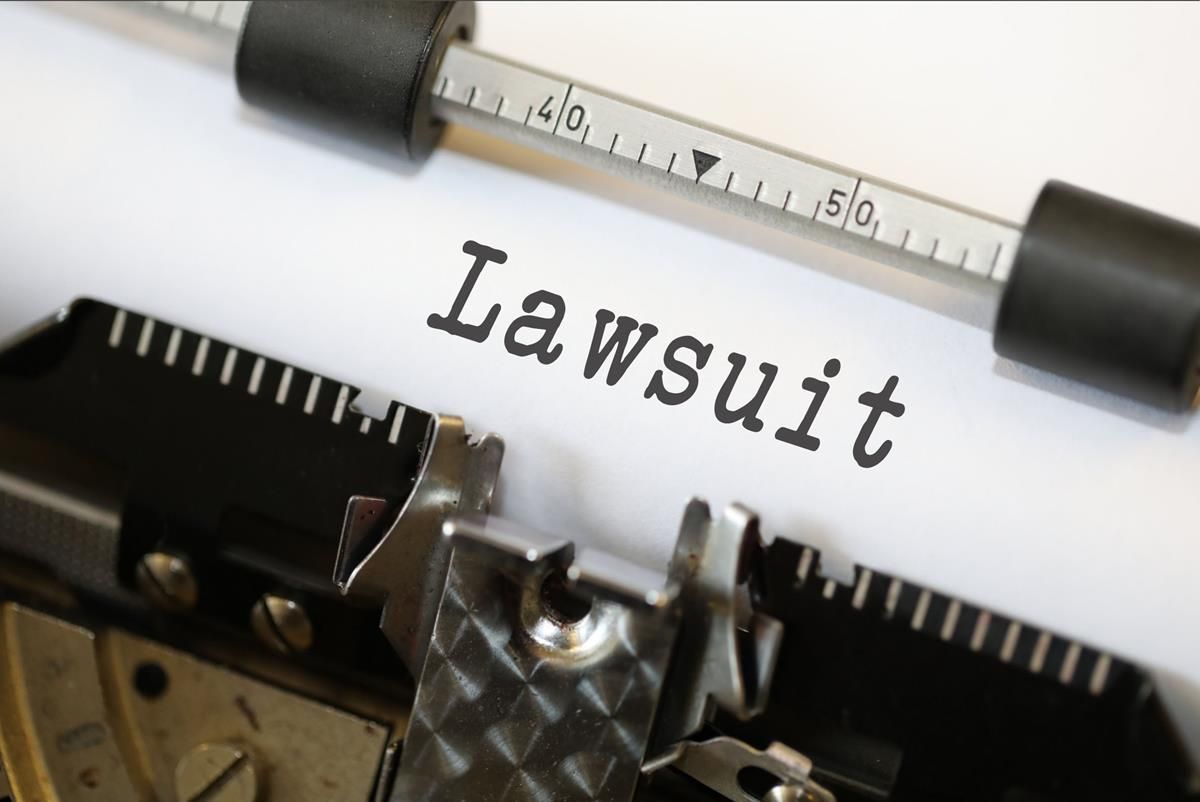
We’ve all seen the headlines, heard the whispers, and maybe even scrolled through a few tragic timelines of former child stars. The dream of dazzling lights, red carpets, and legions of adoring fans is often painted as the ultimate childhood fantasy. But what happens when that dream turns into a relentless nightmare? The reality, as many former child stars have courageously revealed, is far from glamorous. It’s a harsh world where childhood innocence can be lost, and futures can be irrevocably derailed, often through what can only be described as profound “investment mistakes”—not just in finances, but in life itself.
These are not your typical stock market blunders or cryptocurrency mishaps. Instead, we’re talking about the devastating consequences when young lives become commodities, exploited for fame and financial gain by the very adults who should have protected them. From squandered earnings to abusive environments, from the crushing weight of public scrutiny to the insidious grip of addiction, these stars faced challenges that most of us can barely imagine. Their stories serve as stark reminders that the glittering façade of Hollywood often hides a much darker reality, one where childhoods are stolen and futures are tragically compromised.
So, let’s pull back the curtain and dive deep into some of the most heartbreaking and impactful “investment mistakes” made, or rather, suffered, by former child stars. We’ll explore the various ways their paths veered off course, often due to circumstances far beyond their control, illuminating the critical need for better protections and understanding. This isn’t just about sensational stories; it’s about understanding the systemic issues that continue to put young performers at risk. Get ready for a candid look at the real price of childhood fame.

1. **Parental Mismanagement and Exploitation of Earnings**Imagine making millions as a child, only to find it all gone by the time you’re old enough to manage it yourself. This isn’t a rare occurrence but a heartbreakingly common tale for child stars, starting with one of the industry’s earliest icons, Jackie Coogan. Known for his work with Charlie Chaplin, Coogan amassed a fortune only for his mother and stepfather to squander and misspend it, leaving him practically broke. His desperate lawsuit against them led to the landmark Coogan Law in California, which aimed to protect child actors’ earnings.
However, even with the Coogan Law in place, mandating that children’s employers set aside 15% of earnings in a trust, the remaining 85% often remained vulnerable to parental control. Many child stars discovered that their millions vanished before they turned 18, blown through by family members. This financial abuse runs rampant, showcasing how easily the lines between parental care and exploitation can blur when immense wealth is involved. The law, while a step forward, has proven to be an incomplete shield against determined mismanagement.
More recently, we’ve seen similar patterns with stars like Aaron Carter, who stated, “I feel betrayed by my own mother,” after accusing her of mismanaging his money. Corey Feldman also detailed in his memoir how his mother would become “wild-eyed” and threaten him over money when he was fired from a movie set, highlighting the immense pressure and financial dependency placed upon young performers. These instances underscore how parental figures, who should be safeguarding their children’s future, sometimes become the primary agents of financial devastation.
The rise of family vlogging further illustrates this modern iteration of financial exploitation. Channels like Ruby Franke’s “8 Passengers” initially projected a wholesome image but ultimately led to charges of aggravated child abuse, mirroring the predatory behavior seen in traditional Hollywood. Parents on channels like The ACE Family have even created Instagram accounts for their children, exposing them to millions of followers and potential predators, all while admitting to being targeted by stalkers themselves. This ongoing thirst for profit at the expense of children’s privacy and well-being is a glaring “investment mistake” that continues to haunt young stars, regardless of the platform.
2. **Forced into Stardom and Abusive Environments**For many child stars, the path to fame wasn’t a choice but a mandate from their parents. This lack of agency often forced them into toxic and abusive environments, laying the groundwork for severe emotional and psychological trauma that impacted their entire lives and careers. Jennette McCurdy’s acclaimed memoir, “I’m Glad My Mom Died,” powerfully detailed how her mother forced her into show business at six years old and controlled every aspect of her life, including what she ate, directly contributing to McCurdy’s sustained eating disorder.
The vulnerability of minors in Hollywood made them ideal targets for abusers, and the industry’s darker corners were often an open secret. The tragic fate of child star Judith Barsi provides a harrowing example. Her mother groomed her for Hollywood, pushing her into nearly 100 commercials and numerous films by age 10. Yet, Judith came from a chaotic home where her alcoholic father was physically and verbally abusive, frequently threatening the family. Judith developed a nervous disorder, telling friends, “I’m afraid to go home. My daddy is miserable. My daddy is drunk every day and I know he wants to kill my mother.” Her life, and her mother’s, were tragically cut short by her father in a murder-suicide.
Systemic issues within the industry were further exposed by the “Quiet on Set” documentary. It revealed the widespread exploitation of child actors on networks like Nickelodeon, with celebrities like Drake Bell speaking out about the mistreatment and predatory behavior they faced. Dialogue and acting coach Brian Peck was exposed for ually abusing Bell, while production assistants Jason Handy and Ezel Channel were also identified as pedophiles. These appalling incidents demonstrated how powerful networks hired abusers who took advantage of the vulnerable actors on set, creating deeply unsafe and damaging workplaces for children.
The repeated inclusion of ual innuendos and the sexualization of child characters in shows, particularly those produced by figures like Dan Schneider, further normalized a pervasive form of exploitation. This environment not only exposed young viewers to inappropriate messaging but deeply scarred the child actors themselves. Being thrust into such environments, often by their own parents, represented a monumental “investment mistake” in their personal well-being, leading to long-lasting trauma that profoundly impacted their ability to navigate adulthood and sustain healthy careers.
Read more about: Halle Berry at 58: Decoding the Bold Career Moves and Enduring Influence of a Hollywood Icon

3. **Lack of Agency and Control Over Career Decisions**When children are at the helm of multi-million dollar productions, their careers are often dictated by adults—agents, managers, parents, and producers—leaving them with little to no agency. This lack of control over their own professional lives is a significant “investment mistake,” as it can lead to devastating career reversals, typecasting, and a profound sense of identity loss once the spotlight dims. Dana Plato, a star of “Diff’rent Strokes,” is a prime example; her character was written off the show when she became pregnant at 18. She felt shunned by Hollywood, a consequence entirely beyond her control, stemming from societal expectations and industry biases rather than any fault of her own.
The struggle to transition from a beloved child star persona to an adult actor is another common hurdle exacerbated by this lack of agency. Amanda Bynes, once a “model” child star with a spotless reputation, found herself unable to break out of her “goody-goody” genre. Her attempts to shed that image, like her adult role in “Hall Pass,” were fraught with difficulty. She reportedly struggled with focus on set, admitting to chewing Adderall tablets. This inability to evolve her career on her own terms contributed to her walking off the film and ultimately her highly public struggles, demonstrating how being pigeonholed can break a performer.
When a hit show ends, child stars who have known nothing but the set often feel completely lost and adrift. Jodie Sweetin, who played Stephanie Tanner in “Full House” from age 5 to 13, confessed to feeling exactly this after the show’s cancellation. The sudden absence of a structured career and public attention left a void, pushing her towards substance abuse as a coping mechanism. This profound sense of being unmoored, without the power to shape her own future, represents a career “investment mistake” where an entire identity, built by others, crumbles overnight.
Ultimately, being denied autonomy over one’s professional life can lead to poor choices driven by desperation or a desire to rebel against perceived constraints. These choices, often made by young adults grappling with immense pressure and a lack of real-world experience, can further compound financial and personal woes. The industry’s failure to empower child stars with control over their careers leaves them vulnerable to both external forces and their own unguided reactions, making sound long-term planning an impossibility.
Read more about: Unpacking the ‘Why’: Decoding Your Skyrocketing Homeowner’s Insurance Bill and Strategies to Bring it Back to Earth
4. **Impact of Unrealistic Body Standards and Public Scrutiny**The world of child stardom often imposes harsh and unrealistic beauty standards, especially on young girls, turning their developing bodies into subjects of public commentary and professional scrutiny. This intense pressure is a profound “investment mistake,” damaging self-worth and leading to devastating health consequences that can derail careers and lives. Tracey Gold, known for playing Carol Seaver on “Growing Pains,” endured constant humiliation as writers and producers incorporated increasingly cruel “fat jokes” about her into the show.
Gold bravely recounted her pain, telling writers, “You’re not talking just about Carol anymore. You’re talking about me, Tracey Gold.” The relentless teasing, which culminated in the show’s producers mandating that she lose weight, pushed her into an extreme diet of just 500 calories a day. This resulted in her developing anorexia, a severe eating disorder. When the show’s writers later wanted her to gain weight, she was too deep into her disease to comply, leading to the show’s eventual cancellation and her entry into inpatient treatment. Her story, when it emerged in the ’90s, profoundly shook the TV industry, highlighting the cruel realities faced by young actresses.
The early 2000s ushered in an era of brutal tabloid journalism that sensationalized the lives of young celebrities, turning their struggles into public entertainment. Lindsay Lohan’s experience is a prime example; as she battled legal issues and addiction, tabloids turned her life into a spectacle. Unflattering pictures were published, and magazine headlines body-shamed female celebrities, creating a culture where young stars’ physical appearances were relentlessly critiqued, tying their self-worth directly to public perception.
This intense scrutiny tied their worth to public perception and created an environment where privacy was non-existent. Many internalized the idea that their value depended entirely on their appearance, behavior, and appeal, fostering issues such as anxiety and self-destructive tendencies. For these young stars, the constant public judgment became an insurmountable burden, reinforcing a cycle of struggle that made recovery incredibly difficult and representing a massive “investment mistake” in their mental and emotional health, ultimately jeopardizing their careers and personal lives.
Read more about: Behind the Stardom: The Tragic, Unforgettable Journey of ‘Top Gun’ Icon Kelly McGillis

5. **Substance Abuse and Addiction as a Coping Mechanism**The pressures of early fame, coupled with traumatic experiences and a lack of emotional support, often push child stars towards dangerous coping mechanisms, most notably substance abuse and addiction. This tragically common “investment mistake” often becomes a destructive spiral, undermining careers, relationships, and ultimately, lives. Todd Bridges, another troubled star from “Diff’rent Strokes,” had a traumatic childhood marked by an alcoholic father and ual abuse. He later stated that Dana Plato introduced him to alcohol, marijuana, and sex at 14, marking the beginning of his decades-long struggle with substance dependency.
Dana Plato herself tragically embodied this descent. She overdosed on Valium at 14, within the first year of her hit show. Her addiction escalated, leading her to show up drunk on set and later, in a desperate search for cash after being shunned by Hollywood, to rob a video store and forge Valium prescriptions. She eventually lost custody of her son, who himself later died by suicide, before Plato herself died of an overdose at 34, which was ruled a suicide. Her story is a chilling testament to how addiction, fueled by underlying trauma and career collapse, can utterly destroy a life.
Jodie Sweetin’s experience also fits this devastating template. After the cancellation of “Full House” left her feeling adrift at 13, she began drinking and later abused drugs. Her struggles with addiction contributed to multiple divorces, highlighting how substance abuse doesn’t just impact the individual but also their relationships and financial stability. It wasn’t until an emergency custody investigation in 2008 that she found her final straw, committing to sobriety and bravely rebuilding her life.
The heartbreaking pattern shows how accessible drugs and alcohol can be for young stars, often provided by shady hangers-on. The overwhelming stress, attention, and expectations that come with fame can be too much for developing minds to bear, making substances an enticing, albeit destructive, escape. This widespread “investment mistake” in self-medication tragically leads to wasted youth, broken lives, and the endless controversies that have come to define many child star narratives.
Read more about: Unmasking the Saboteurs of Your Sleep: 15 Critical Routine Flaws Derailing Your Recovery Journey

6. **Mental Health Crises and Self-Destructive Behaviors**Beyond substance abuse, the intense psychological toll of child stardom often manifests as profound mental health crises and self-destructive behaviors, representing a deep and pervasive “investment mistake” in a star’s well-being. The lack of emotional support and the constant pressure can lead to anxiety, depression, identity crises, and more, making it incredibly difficult for these individuals to navigate adulthood. Amanda Bynes, once seen as a “model” child star with a spotless reputation, saw her life publicly unravel in what appeared to be a severe mental health decline. Her disturbing social media messages and erratic behavior shocked fans, illustrating how Hollywood, despite its glittering appeal, can profoundly break a person.
Johnny Lewis, famous for his role as Kip “Half Sack” Epps in “Sons of Anarchy,” is another tragic example of how mental health issues can combine with other factors to create a devastating outcome. Despite being an excellent actor, his behavioral problems, coupled with mental health struggles and drug dependency, made him difficult to work with, leading him to ask to be written out of the show. After a motorcycle accident and head injury, which some suspect may have led to an undiagnosed mental disorder, he was arrested multiple times. Tragically, just days after being released from jail, he murdered his 81-year-old landlady and her cat before falling to his death, an autopsy later confirming no drugs or alcohol were in his system, pointing instead to a severe mental health crisis.
Many child stars report feeling lost when the intense attention fades, struggling with an identity crisis because their sense of self was so intertwined with their public persona. They often develop trust issues and may lack basic life skills, having spent their formative years on set rather than engaging in typical childhood development. Lindsay Lohan’s public meltdown, characterized by legal issues and rehab stints, was exacerbated by constant tabloid scrutiny, creating a cycle where her struggles were amplified and recovery became even harder. The clear disregard for the mental health and privacy of young celebrities, especially females, was a glaring omission in their support systems.
These profound mental health struggles are perhaps the most insidious “investment mistake” because they undermine every other aspect of a child star’s life. The stress, attention, expectations, and the sheer amount of money can overwhelm young minds, leading to conditions that make sound financial, career, or personal decisions virtually impossible. Until stricter regulations and stronger enforcement of labor laws, along with comprehensive mental health support, are implemented, the dark side of child stardom will continue to leave detrimental effects on countless lives, confirming that fame pursued at the cost of well-being is no investment at all.
Read more about: Beyond the Pixels: An In-Depth Look at the Grueling Hours and Enduring Stress Shaping Game Development Today
7. **Loss of Privacy**The relentless glare of the spotlight often feels like a golden ticket, but for many child stars, it’s an unforgiving “investment mistake” that robs them of a normal life. Imagine your every move, every awkward teen phase, and every personal struggle becoming fodder for public consumption. That’s the reality for young celebrities, who grew up without the basic luxury of privacy, thanks to an insatiable public and a ruthless media machine.
The early 2000s, in particular, ushered in an era of brutal tabloid journalism that sensationalized the lives of young celebrities, turning their struggles into public entertainment. Paparazzi would constantly harass them to get stories, undoubtedly contributing to long-lasting trauma. This intense scrutiny tied their worth to public perception, creating an environment where young stars’ physical appearances and behaviors were relentlessly critiqued. Many internalized the idea that their value depended entirely on their appearance, behavior, and appeal, fostering issues such as anxiety and self-destructive tendencies.
This isn’t just about old-school tabloids, either. The digital age brought new forms of exposure, with the rise of family vlogging creating a fresh wave of child exploitation. Channels like The ACE Family have parents creating Instagram accounts for their children, exposing them to millions of followers. This is a huge violation of children’s privacy, especially since the parents themselves have admitted to being targeted by stalkers. The overwhelming popularity of these videos exposes children to online predators and long-term emotional harm, highlighting a modern “investment mistake” in privacy for profit.
Ultimately, none of these young stars chose to grow up with paparazzi watching their every move, or with their childhood documented for millions. This constant public judgment became an insurmountable burden, reinforcing a cycle of struggle that made recovery incredibly difficult. It represented a massive “investment mistake” in their mental and emotional health, ultimately jeopardizing their careers and personal lives, leaving many feeling lost and struggling with an identity crisis when the intense attention faded.
Read more about: Unveiling America’s Secrets: 14 Famous Landmarks and Their Jaw-Dropping Hidden Histories
8. **Inadequate Protections**While Hollywood might appear glamorous, it’s startling to realize that the TV industry is one of the few places where child labor is widely accepted, a fundamental “investment mistake” if adequate safeguards aren’t in place. Despite efforts to protect children from the problems that come with fame, countless controversies have proven these measures often fall short. The limited rights of children in such a powerful industry have led to issues from the very beginning, often turning young lives into commodities.
Take the Coogan Law, for example. Born from Jackie Coogan’s tragic experience of having his fortune squandered by his parents, this landmark legislation aimed to protect child actors’ earnings by mandating that employers set aside 15% in a trust. While a vital step, the remaining 85% often remained vulnerable to parental control. Many child stars discovered that their millions vanished before they turned 18, blown through by family members, showcasing how easily this “shield” could be bypassed.
More recently, the “Quiet on Set” documentary pulled back the curtain on systemic issues within the industry, specifically exposing widespread exploitation on networks like Nickelodeon. Appalling incidents demonstrated how powerful networks hired abusers who took advantage of vulnerable actors on set, creating deeply unsafe and damaging workplaces for children. These revelations underscored how existing protections were either ignored or simply not strong enough to prevent horrific abuse, leaving young performers at severe risk.
Despite growing concerns and countless stories of traumatized child stars speaking out, progress on stronger protections remains painfully slow. While better laws theoretically exist today—mandating set teachers, psychological support, and stricter working hours—YouTube and TikTok kids often face the same pressures with even fewer protections. Until stricter regulations and stronger enforcement of labor laws, along with comprehensive mental health support, are implemented, the dark side of child stardom will continue to leave detrimental effects on countless lives, confirming that fame pursued at the cost of well-being is no investment at all. California might have child labor laws, but emotional support for these young stars remains a critical, often “hit or miss,” gap.
Read more about: Mastering Car Title Security: 13 Essential Strategies to Safeguard Your Vehicle and Finances from Deceptive Scams

9. **Sacrificed Education**For many child stars, childhood wasn’t about playgrounds and homework, but rather about long hours on set, turning their formative years into a profound “investment mistake” in their education and overall development. Most spend their teens on movie sets instead of in classrooms, missing out on crucial social milestones like proms, sports teams, and sleepovers. By 18, many describe feeling like aliens trying to fit into everyday life, having missed the fundamental experiences that shape typical adolescents.
The quality of education for child stars is often a mixed bag, directly impacting their “career outcomes” beyond acting. On-set tutors vary wildly, and while some states demand better educational standards, enforcement can be spotty. This inconsistent academic foundation means that many child actors don’t just miss out on traditional schooling; they also miss out on developing essential critical thinking and problem-solving skills that a robust education provides.
Perhaps even more significantly, social skills suffer the most. Missing everyday childhood experiences creates awkward adults who often struggle with relationships and basic social cues. Hollywood kids who have grown up describe feeling like “old souls with missing pieces” – capable of handling business meetings at 15 but struggling with basic life skills like doing laundry at 25. This imbalance represents a huge “investment mistake” in holistic development, leaving them ill-equipped for life beyond the cameras.
However, some successful former child stars demonstrate that a strong commitment to education can make all the difference. Natalie Portman, for instance, famously went from “The Professional” to Harvard, balancing her acting career with rigorous academic pursuits and eventually winning an Oscar. Similarly, Danica McKellar, known for “The Wonder Years,” left acting to pursue mathematics, even writing children’s books about math, proving that child stars can indeed excel in diverse fields when their intellectual growth is prioritized. These stories highlight the stark contrast between those who managed to prioritize learning and those for whom education was sadly sacrificed.
Read more about: Buyer Beware: 8 Budgeting Traps That Can Derail Your Financial Future
10. **Intergenerational Trauma**The world of child stardom, often romanticized, frequently conceals a darker reality where “investment mistakes” echo through generations, perpetuating cycles of abuse and trauma within families. Many child stars inherit a legacy of dysfunction, where the very parents meant to protect them become agents of harm, setting a devastating precedent for their children’s futures. This insidious intergenerational trauma is a heartbreaking aspect of early fame.
Consider the harrowing stories of families like the Carters. Aaron Carter alleged he was abused by his sister and others, and his life, along with those of his siblings Leslie and Bobbie Jean, was tragically cut short by drug-related deaths. This pattern of substance abuse and early demise within one family paints a stark picture of how trauma can ripple through generations, transforming individual struggles into a shared calamity that undermines well-being and stability.
Corey Feldman’s memoir, “Choreography,” chillingly detailed his experience with a “mentally volatile and abusive mother” who would scream and threaten him over money. He recounted her saying, “‘How could you f***ing do this to me?’ she screams, ‘She is out of control, wild-eyed, like an animal … ‘You know I need this f***ing money. I will kill you. I will f***ing kill you, you worthless piece of s***!'” This kind of emotional abuse, rooted in parental financial desperation and control, profoundly impacts a child’s psychological development and self-worth. It forces young performers to shoulder immense burdens, not just for their own careers but for their entire family’s survival.
Jodie Sweetin’s life also tragically checked many of these boxes from the very beginning, with both her parents arrested before she was even one year old and her biological father dying in a prison riot soon after. She also suffered ual assault as a child. These early experiences, coupled with the pressures of fame, laid a foundation for her later struggles with addiction. When children are born into or experience such chaotic and abusive family environments, the “investment mistake” is not just in their immediate well-being, but in the long-term patterns of trauma that can define their entire lineage. Family dynamics become incredibly complicated when children start paying the bills, often creating fertile ground for exploitation and lasting emotional scars that demand a high price.
Read more about: Beyond the Pages: 12 Essential Insights into Toni Morrison’s Pulitzer-Winning Masterpiece, ‘Beloved’

11. **Poor Career Transitions**The shift from being a beloved child star to a respected adult actor is often less a smooth transition and more a treacherous tightrope walk, representing a significant “investment mistake” for many who fail to navigate it successfully. Imagine being famous for playing a specific character from a young age, only to find audiences and casting directors unable to see you as anything else. This struggle to break free from a child persona can lead to devastating career reversals and a profound sense of identity loss.
Amanda Bynes, for instance, found herself pigeonholed in “goody-goody” roles, unable to break out of that genre despite her talent. Her attempts to shed that image, like taking an adult role in “Hall Pass,” were fraught with difficulty, reportedly leading to struggles with focus and substance use on set. This inability to evolve her career on her own terms contributed to her walking off the film and her highly public struggles, demonstrating how being typecast can fundamentally break a performer’s career trajectory and personal well-being.
Similarly, Dana Plato’s character was controversially written off “Diff’rent Strokes” when she became pregnant at 18, making her feel shunned by Hollywood. In a desperate bid for income and relevance, she resorted to posing for Playboy and starring in softcore erotic dramas. This stark pivot from family-friendly star to adult performer, driven by industry biases and financial pressures, illustrates how a lack of viable career options can push former child stars into roles they might not otherwise choose, further complicating their public image and personal stability.
When a hit show ends, child stars who have known nothing but the set often feel completely lost and adrift. Jodie Sweetin confessed to feeling exactly this after “Full House” was canceled, leaving her with a void that she tragically filled with substance abuse. This profound sense of being unmoored, without the power to shape her own future, represents a career “investment mistake” where an entire identity, built by others, crumbles overnight. While 70% of child actors quit before age 25, the successful ones, like Ron Howard transitioning from “Happy Days” to Oscar-winning director, or Mara Wilson becoming a writer, show that strategic transitions, often away from traditional acting, can lead to new, fulfilling paths. But for many, the path to reinvention is tragically elusive.
Read more about: The Annual Intellect: 15 Foundational Books Top Business Leaders Revisit for Enduring Success
12. **Financial Illiteracy**Making millions as a child, only to find it all gone by the time you’re old enough to manage it, is a tragically common “investment mistake” for former child stars. This isn’t just about bad luck; it’s a systemic issue rooted in a profound lack of financial literacy and predatory exploitation by adults. Young performers, often without guidance, are thrust into a world of immense wealth but zero control, setting them up for future financial ruin.
The infamous case of Jackie Coogan, the original child star, perfectly illustrates this point. He earned a fortune only for his mother and stepfather to squander it, leaving him practically broke. Even with the Coogan Law mandating that 15% of earnings be set aside in a trust, the remaining 85% often remained vulnerable to parental control. Many child stars discovered their millions vanished before they turned 18, blown through by family members who prioritized their own desires over their children’s long-term financial security. Aaron Carter’s accusation of his mother mismanaging his money further underscores this pervasive problem.
This financial abuse isn’t just about outright theft; it’s also about parents placing undue financial pressure on their children, as Corey Feldman painfully described with his mother’s threats. When children are the primary breadwinners, family dynamics become incredibly complicated, making it nearly impossible for them to learn sound financial management. They are often shielded from the realities of money, only to be overwhelmed when sudden responsibility falls upon them, or worse, when they discover their supposed nest egg is empty.
Ultimately, Hollywood kids often describe feeling like “old souls with missing pieces”—capable of handling high-stakes business meetings at 15 but struggling with basic life skills like doing laundry at 25. This extends to financial independence. While successful former child stars often share traits like sound financial management, many others are left vulnerable due to a severe lack of education on handling wealth. This “investment mistake” in financial literacy leaves them susceptible to poor decisions, further compounding their personal and career challenges, and highlighting the critical need for mandatory financial education and independent oversight for young performers.
Read more about: The Unjust Aftermath: A Rolling Stone Investigation into How Janet Jackson Paid the Price While Justin Timberlake Profited
So, as we pull back the final curtain on these revealing stories, it becomes overwhelmingly clear that the “investment mistakes” of child stardom are multifaceted and deeply ingrained, extending far beyond simple financial missteps. From the tragic loss of privacy and inadequate protections to sacrificed educations, intergenerational traumas, botched career transitions, and crippling financial illiteracy, the glittering façade of Hollywood often hides a harsh reality. These narratives are not just cautionary tales; they are powerful calls to action, urging us to demand better for the young dreamers who enter this complex world. It’s time to ensure that fame, for any child, is never pursued at the cost of their fundamental well-being, their future, or their very childhood. The true investment needed is in comprehensive support systems, robust legal safeguards, and a cultural shift that prioritizes the health and happiness of every young performer.









